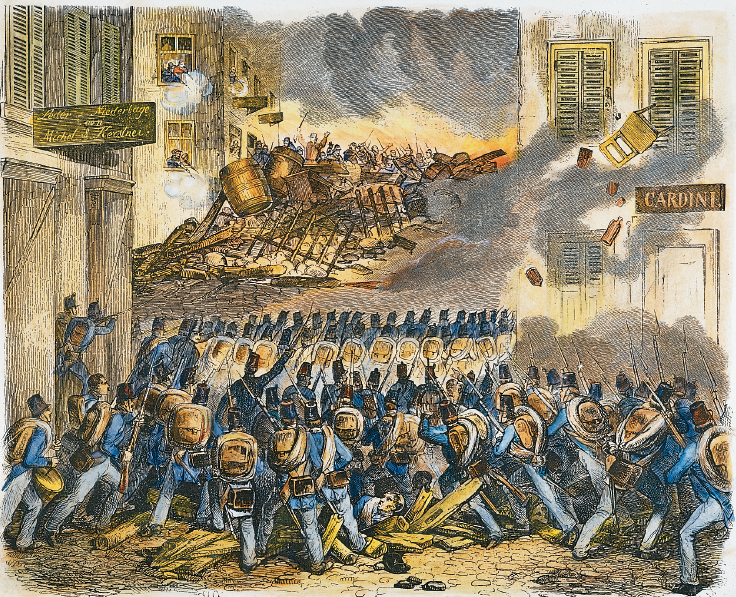Understanding Western Society
Printed Page 665
| > | What were the main causes and results of the revolutions of 1848? |
IIN THE LATE 1840S, Europe entered a period of tense economic and political crisis. Bad harvests across the continent caused widespread distress. Uneven industrial development failed to provide jobs or raise incomes, and revolts and insurrections rocked Europe.
Full-

THE REVOLUTIONS OF 1848
 1848
1848
|
||
| January | Uprising in Naples, Italy | |
| February | Revolution in Paris; proclamation of provisional republic | |
| March | Revolt in Austrian Empire; Hungarian autonomy movement; uprisings in German cities | |
| May | Frankfurt parliament convenes to write a constitution for a united Germany | |
| June | Republican army defeats “June Days” workers’ uprising in Paris; Austrian army crushes working- |
|
| September– |
Counter- |
|
| December | Francis Joseph crowned Austrian emperor; Louis- |
|
 1849
1849 |
||
| March | Frankfurt parliament completes draft constitution, elects Frederick William of Prussia emperor of a Lesser Germany, which he rejects | |
| June | Russian troops subdue Hungarian autonomy movement; Prussian troops dissolve the remnants of the Frankfurt parliament | |